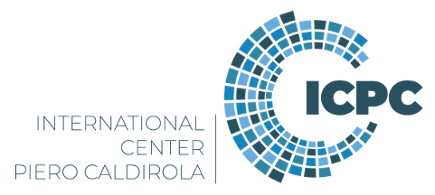Speaker
Description
The spherical tokamak Globus-M was upgraded in 2018. The upgraded facility was renamed to Globus-M2 [1]. The upgrade was aimed to get the experimental conditions closer to the compact spherical tokamak-based fusion neutron source, used as a driver in a hybrid fusion-fission reactor [2]. Due to the modernization the following parameters have already been achieved: Ip = 0.4 MA, BT = 0.8 T for deuterium plasma [3]. Moreover, the second injector of a neutral beam was put into operation during the upgrade. Thus, tangential co-injection of two neutral beams can be carried out on the Globus-M2 tokamak with maximal atomic energy up to 30 keV and 50 keV, respectively, and with the total input power up to 2 MW [4].
A neutron spectrometry diagnostic system was developed at the Ioffe Institute as part of an upgrade to optimize NBI heating conditions and evaluate heating efficiency. The system contains two compact neutron spectrometers based on the liquid organic scintillator BC501-A and two gas-discharge counters based on a 10B isotope. The BC501-A spectrometers were calibrated by measuring neutron emission produced in a 9Be(α,n)12C nuclear reaction on the cyclotron facility at the Ioffe Institute. The neutron-gamma coincidence method was applied in these measurements. Response functions of the BC-501A spectrometers to monoenergetic neutron radiation were obtained and registration efficiency as a function of neutron energy was estimated. In addition, in situ calibration of the system, including the neutron spectrometers and the gas-discharge counters, was carried out using Am-Be neutron source to provide accurate measurements of the total neutron yield from the plasma of the Globus-M2 tokamak.
During the plasma experiments at the Globus-M2 tokamak, a deuterium beam was injected in the deuterium plasma that causes a yield of the DD-neutrons with ~2.45 MeV energy. The neutron spectrometry diagnostic system was used to provide neutron measurements and detect the DD-neutrons in these experiments. The neutron yield during plasma discharges was evaluated, the estimation of the DD-reaction rate and neutron confinement time were obtained, and energy distributions of neutrons in plasma during discharge were reconstructed from the measured neutron spectra.
The work was performed on the Unique Scientific Facility "Spherical tokamak Globus-M", which is incorporated in the Federal Joint Research Center "Material science and characterization in advanced technology", and was supported by the Russian Science Foundation grant № 21-72-20007.
[1] Minaev, VB et al, « Spherical tokamak Globus-M2: design, integration, construction», Nucl. Fusion 57 (2017) #066047
[2] Bakharev,NN et al, «First Globus-M2 Results», 2020, Plasma Phys. Rep., v.46, 7, pp. 675-682
[3] Yu.V. Petrov et al, Overview of Globus-M2 spherical tokamak results at the enhanced values of magnetic field and plasma current. 28th IAEA Fusion Energy Conference (FEC 2020),10–15 May 2021, EX-OV/4, virtual event
[4] Minaev, VB et al, «Progress in the experiment on the neutral beam injection on the spherical tokamak Globus-M2», 46TH EUROPEAN PHYSICAL SOCIETY CONFERENCE ON PLASMA PHYSICS, EPS 2019, 2019, P4.1084/

